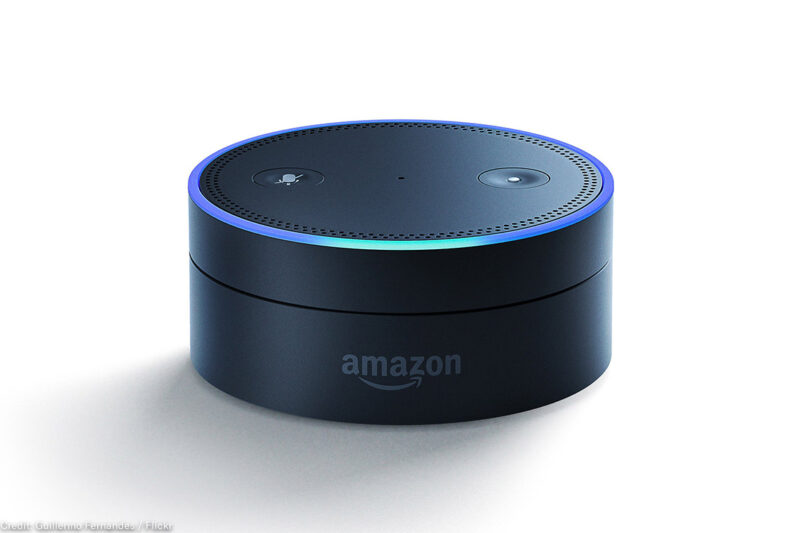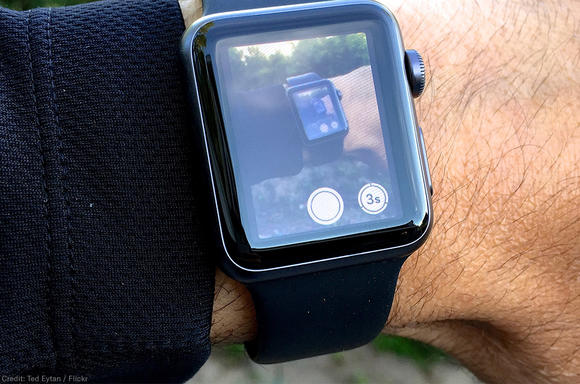
To paraphrase Homer Simpson, we all know that technology is the cause of — and solution to — all of life’s problems.
We like technology at the ACLU — but we also want everyone to have their eyes wide open when it comes to the privacy risks that can accompany the latest electronic gear, from smartwatches to internet-connected home appliances.
Smart Speakers

Realize that when you plug in an Amazon Echo, Apple HomePod, or Google Home, you’re switching on a microphone that’s always on inside your home. In theory, it only transmits information when you say the wake word, like “Alexa.” But sometimes they can accidentally transmit what you’re saying.
And there’s the question of what happens to the data when they are supposed to be recording. You do have the option to delete it, but there have been cases of police asking companies to turn it over.
Video Doorbells

These are essentially doorbells with video cameras in them. They can show you who’s at your door and give you the ability to video chat with them. Amazon even has plans to equip them with facial recognition. There are also similar cameras for placing inside your home.
One concern with these devices is that they can be hacked — and this goes for any kind of internet-connected devices in and around the home. There’s also the possibility of bugs in the code that can send video where it isn’t supposed to go, like when a flaw caused people to get video feeds from their neighbors’ cameras.
Smartwatches and Fitness Trackers

Wearable devices like the Apple Watch and Fitbit are collecting a lot of very personal information about you — everything from your heartrate to how well you’re sleeping. Anytime you generate a collection of data that’s so intimate, it becomes a target for hackers — and it can also potentially be accessed by the government. So you need to ask yourself if this is a dataset about yourself that you want to create.
Drones

Let’s turn the privacy issue around the last item on our list: With drones you should be sure to respect other people’s privacy and not run afoul of “peeping Tom” laws.
You also need to make sure that you follow the Federal Aviation Administration’s fairly strict rules for drones, which include mandatory registration, keeping it below 400 feet, and staying away from aircraft.


%3Ciframe%20allow%3D%22accelerometer%3B%20autoplay%3B%20encrypted-media%3B%20gyroscope%3B%20picture-in-picture%22%20allowfullscreen%3D%22%22%20frameborder%3D%220%22%20height%3D%22315%22%20src%3D%22https%3A%2F%2Fwww.youtube.com%2Fembed%2FT3guCApYJYs%3Fautoplay%3D1%26version%3D3%22%20thumb%3D%22%2Ffiles%2Fweb18-gadgetgiftguide-560×315.jpg%22%20width%3D%22560%22%3E%3C%2Fiframe%3E
Privacy statement. This embed will serve content from youtube.com.
All in all, tech can make life easier — just be aware of all the potential implications that come with using it that might not be so apparent at first glance. When you use gadgets that are connected online, you’re often creating revealing data about yourself that could possibly be accessed by the government or hackers. The companies that make the products also have the information too, so you should think about how much you trust them with your privacy.
Sign up for the ACLU’s Best Reads and get our finest content from the week delivered to your inbox every Saturday.




